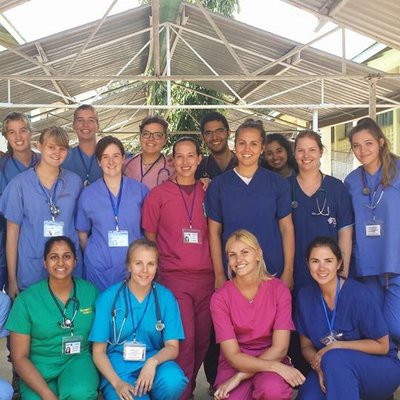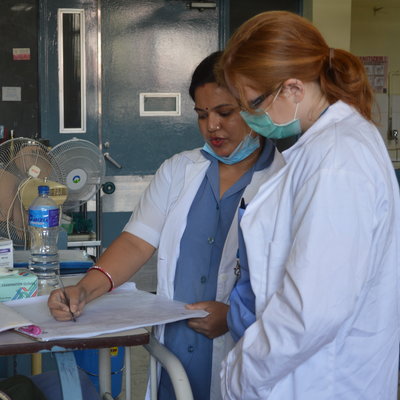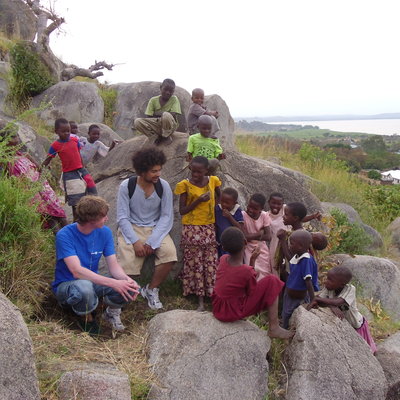Emily travelled to Ghana with us a few years ago. She is now a happy and successful midwife working near her home in West Sussex.
We spoke to Emily to hear her story and discover how her time in Ghana was crucial to her enjoying her career as a midwife.
Over to Emily...
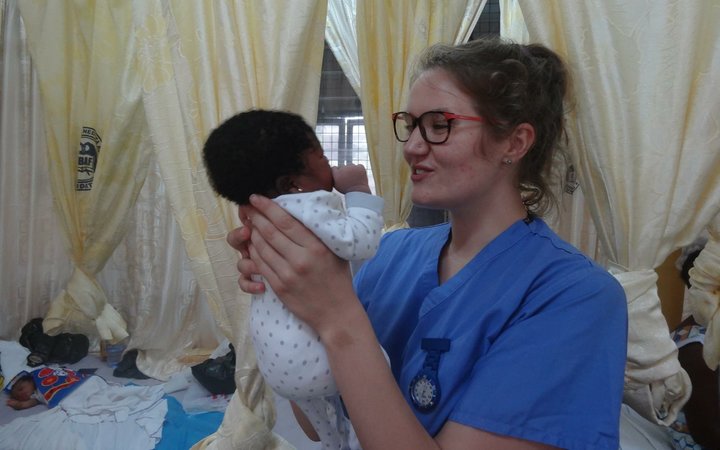
The new perspectives I got while I was in Ghana are what helped shape my current practise more than anything else.
I’d wanted to do something clinical since I was a kid, and travelling had always been my dream.
I liked the idea of midwifery because, after doing my research, I found that it is relatively autonomous. Sometimes, things need to be referred to, but overall, it’s just me, the mother, the baby, and the family. That was one of the main reasons I wanted to do it.
Anyway, I ended up pursuing a midwifery degree at Bournemouth University! The course was full-on, but I knew it would be challenging before I started.
People told me that studying midwifery would not be the same as everyone else's university experience. Although it was busy, I managed to go out and have a great time.
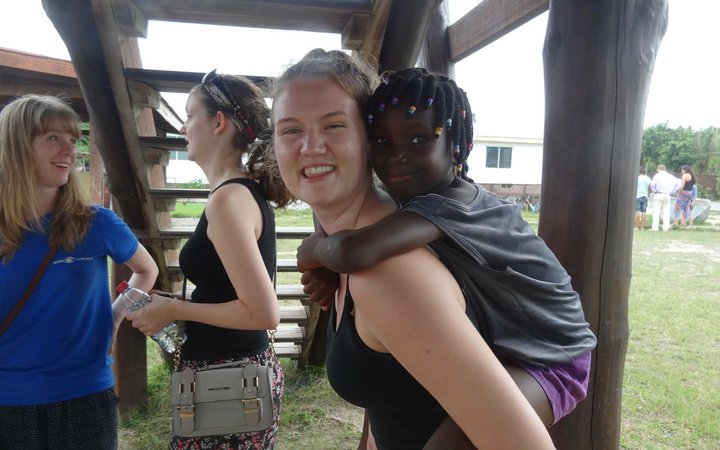
The course was 50% practice and 50% placement, equivalent to working full-time. But it was so worth it. It helped me get to where I am today, and I couldn’t be happier in my job.
I’m a bit of a home bird. Having lived down on the south coast my whole life. I didn’t want to move too far. I love the beach, going for long walks to relieve stress… Bournemouth is great for that kind of thing. As a city for a student to live in, it was brilliant. I loved it.
There was so much going on, which was great for midwifery because there were several different hospitals and a birth centre.
The nightlife was brilliant, and the shopping was good. The university has two campuses, one of which is huge with a great library and everything else you’d need as a student. The lecturers were fantastic, too.
Bournemouth University organised an elective event at the start of our third year. We can take our elective anywhere in the UK or the world. The university recommended a few companies, the most highly praised of which was Work the World.
We listened to presentations from students who had already travelled with Work the World. They talked about how they were cared for throughout the process, which seemed like the safest and most organised way to do it.
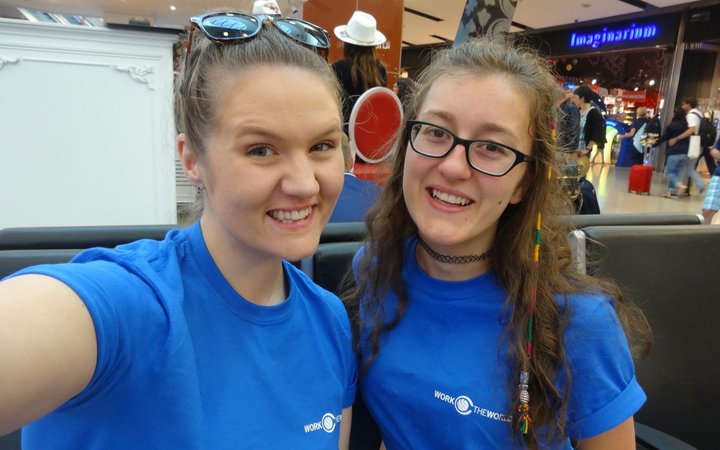
I also knew that studying abroad, especially in a developing country, would offer a new perspective on midwifery.
Everything is formalised in the NHS. Individuals can practise differently, but a midwife is a midwife. We all follow the same guidelines and practices. The structure in hospitals is very similar because it has to be.
I wanted to see how midwifery fit into a different culture and how somewhere so deprived of resources coped with meeting the needs of new babies and their mothers.
Work the World offers such a wide range of destinations. We looked at all the destinations on the website, and they all sounded terrific. My friend Emma was set on visiting Africa, and we also saw a presentation about someone who had been to Ghana with Work the World, which looked incredible. The flight to Ghana was also the shortest and cheapest flight from England, which helped us decide.
MY TIME In Ghana
Midwifery was different in Ghana.
Because local midwives had been educated—they had attended school, college, or university—they were considered to be of higher standing than many women they cared for.
How they communicated with expectant mothers differed from what we were used to at home.
They would sometimes physically slap labouring women or shout at them if they were making too much noise during labour. It was important to remember this was, of course, all down to cultural differences. Women were expected to be strong throughout the birth process, and making noise can be seen as causing too much of a fuss.
That said, the local midwives did a great job. They knew their stuff, and we were surprised by how knowledgeable they were about their practice.
Infant mortality was much higher over there, partly because of a lack of resources.
Bereavement was also handled differently over there. We have very sensitive bereavement care in England, whereas when a baby died in Ghana, it came across as a much less emotional experience. Infant mortality was much higher over there, partly because of a lack of resources. The way people dealt with it was to distance themselves emotionally from the baby until it was safely born.
I initially struggled with this, but the Work the World house staff were excellent. Other students in the house had experienced similar things, so having that support network when we went home after a challenging shift was priceless.

We were surprised that local midwives practised so similarly to their UK counterparts, but it was a different story in emergencies.
The nearest doctor lived about an hour away, so if a mother needed to have an emergency caesarean, it took a long time to get started. In the UK, we ring the bell, get staff where they’re supposed to be straight away and get mum into the theatre in a timely manner, all to get the best outcome for the child. But Ghana didn’t have the facilities or the resources.
My friends and I always talk about how we changed because of the experience.
I feel so much stronger because of the experience.
I had never been travelling. I’d been abroad on holidays, but never anywhere like Ghana. Gaining perspective on the world was amazing—seeing another culture and completely immersing myself in it, learning about how local people approach everything differently and how much more relaxed they are about things.
I feel so much stronger because of the experience. Even in my personal life, I will often reflect on my experiences in Ghana. If I’m moaning about my problems, I’ll think, “Come on, Em, you need to gain some perspective.” Again, I think that’s priceless.
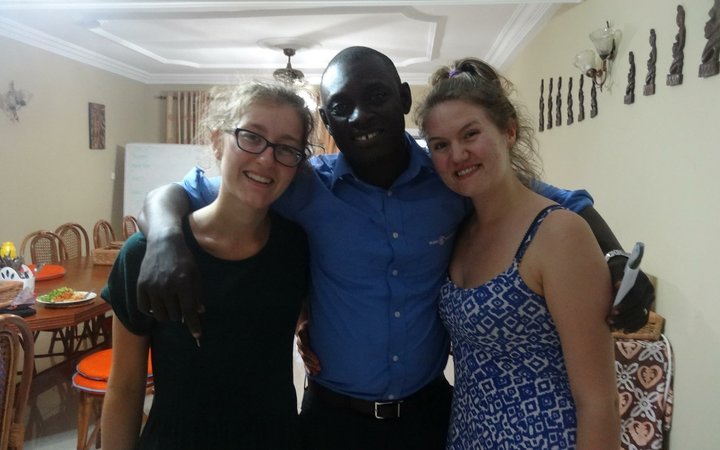
It’s true in my professional life as well. If I’m being challenged at work, I must resist saying things like, “You should try and have your baby in Ghana!”.
My housemates and I all had very different clinical placements. At the end of each day, we all came together for dinner and spent evenings together, discussing what we’d seen and sharing our experiences. There was only so much one person could see throughout a couple of weeks, so hearing about everyone else’s experiences helped me build up a broader picture of the healthcare system in Ghana.
It was nice to speak to like-minded people about everything, have a debriefing, and have support from the Work the World team.
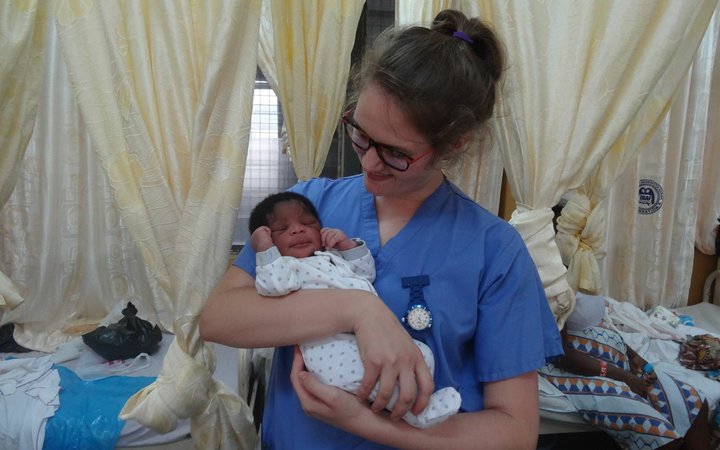
I still have a Facebook group with the friends I made there. We created it to share photos and experiences. Funnily enough, one of the GP surgeries I was involved with the other day was Harbour View, also the name of this funny little place we visited in Ghana to buy our souvenirs. I posted it there for a giggle!
Every person who lived in that house now bonds with the others. Even though I don’t see them in person, we’re all still close. If I ever have a question, I feel comfortable going to them. It was such a critical time for us all.
My Life as a qualified midwife
In the year that I graduated, the early jobs started coming through in January and February. Bournemouth University advised us to apply for as many jobs as we could.
Midwifery jobs weren’t easy to find, so it made sense to apply for many positions and review any offers before making a final decision.

I found out that I got a job while I was in Ghana! I ended up at Western Sussex Hospital, where I am today. As I said, I’m a bit of a home bird, so I wanted to be near my mum and dad. Getting a job so close to home was excellent.
Our trust is split into two hospitals: Chichester and Worthing. Both have maternity units, and when I first qualified, I was on the Chichester site. It was farther than I’d have liked, but I persisted in the hope that they would eventually transfer me to Worthing.
They did, and it worked out amazingly well.
I started working in the hospital on the wards and the delivery suite, but I started travelling out into the community in January of this year.
I now drive around doing home visits, am on call for home births, and perform clinics in GP surgeries.
My time with Work the World in Ghana helped me to appreciate everything I have where I work now.
When I get up in the morning, I open my laptop and look at my workload for the day. I would either do a clinic in the morning and then be out and about in the afternoon or out and about all day. I’m the first point of contact for mothers when they fall pregnant.
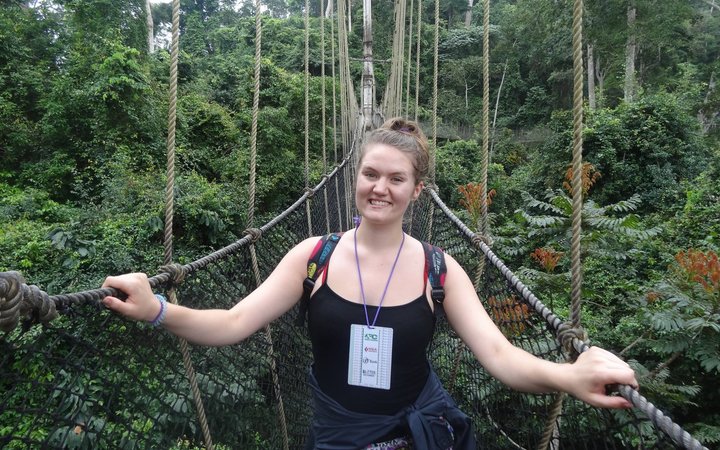
I make a standard appointment at mothers' homes. During this visit, I take the complete history, talk the mother through all the screenings we offer on the NHS, and perform blood tests. I might do two of those in the morning and then a home visit in the afternoon.
During a home visit, I ensure that the baby is feeding well, that the mother is recovering properly, and that any problems are addressed.
Once a week, I’m on call throughout the night. I could work from 9 a.m. to 5 p.m. and then be on call from 5 p.m. to 9 a.m. the following day. So I'm there if there are any ‘accidental’ home deliveries!
I absolutely love it.

My time with Work the World in Ghana helped me to appreciate everything I have where I work now. I think it all comes back to the perspective I gained while there.
I didn’t go to Ghana to gain more midwifery knowledge as such—I had almost finished my third year of training, so I’d learnt everything I needed to get started. It was more about experiencing a different culture. The new perspectives I got while I was there helped shape my current practice more than anything else.
Of course, the NHS is still a challenging environment. We're currently under a lot of stress because we’re short-staffed. There’s also litigation, so paperwork is essential. But any time I feel like things are getting too much, I think back to my time in Ghana.
I’d go back tomorrow if I could.
Discover more about our Electives in Africa. You'll find various unique destinations offering eye-opening clinical experiences and adventures.
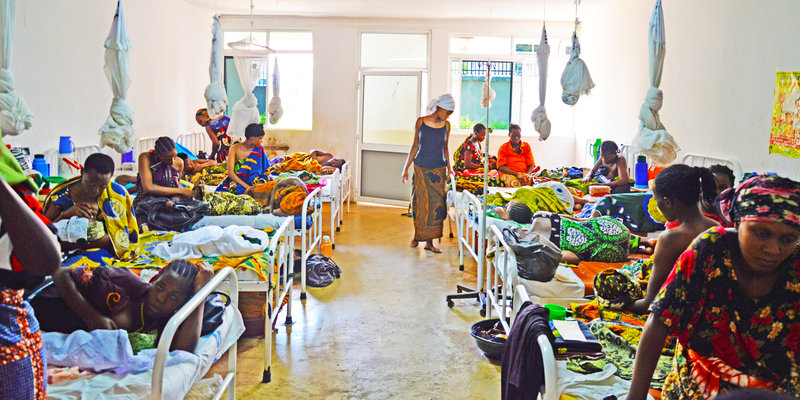
MIDWIFERY
ELECTIVES
To find out how you can customise your own overseas midwifery elective, use the button below.
To find out how you can customise your own overseas midwifery elective, use the button below.
